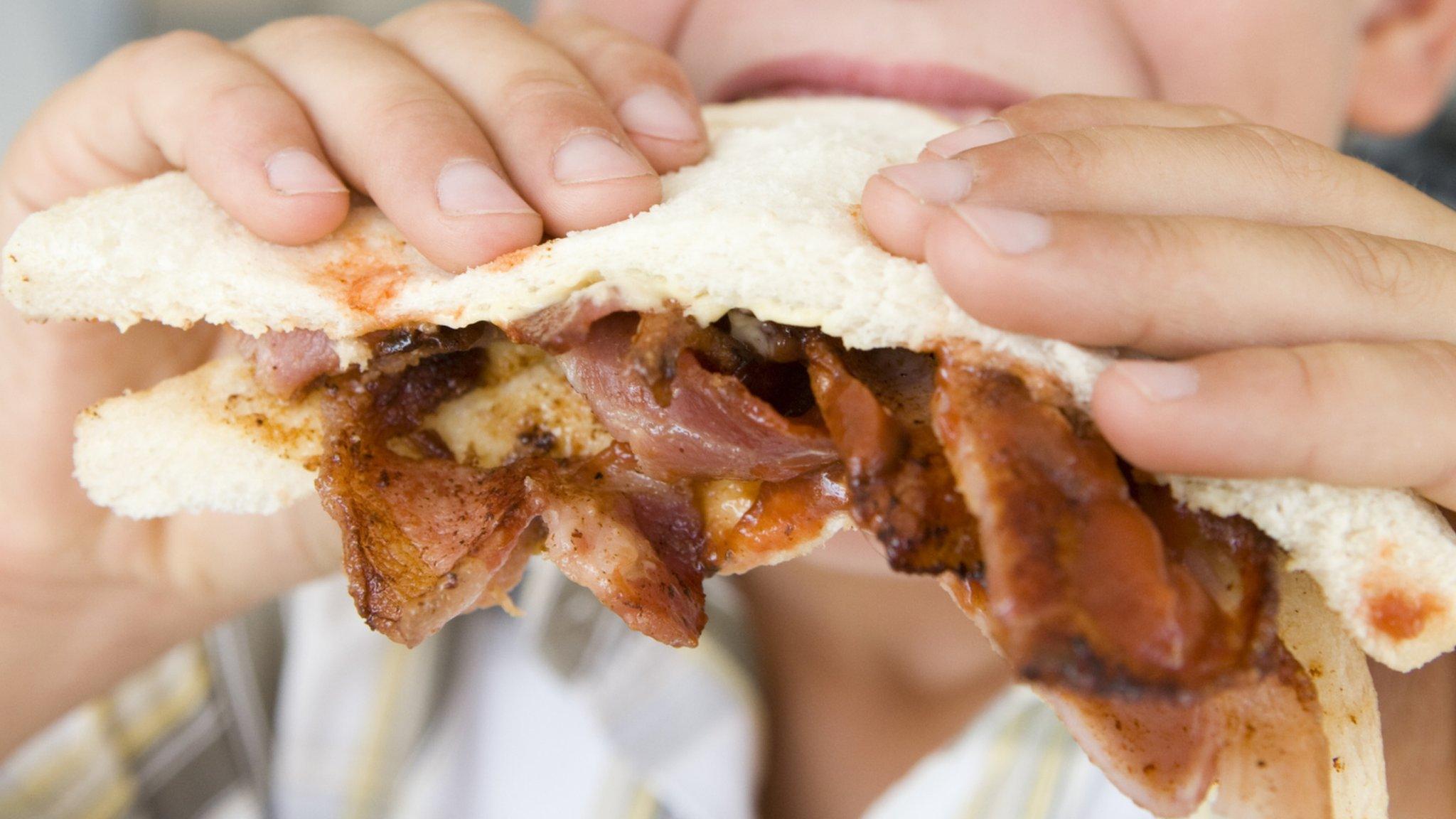EU gives doner kebabs a health grilling
- Published
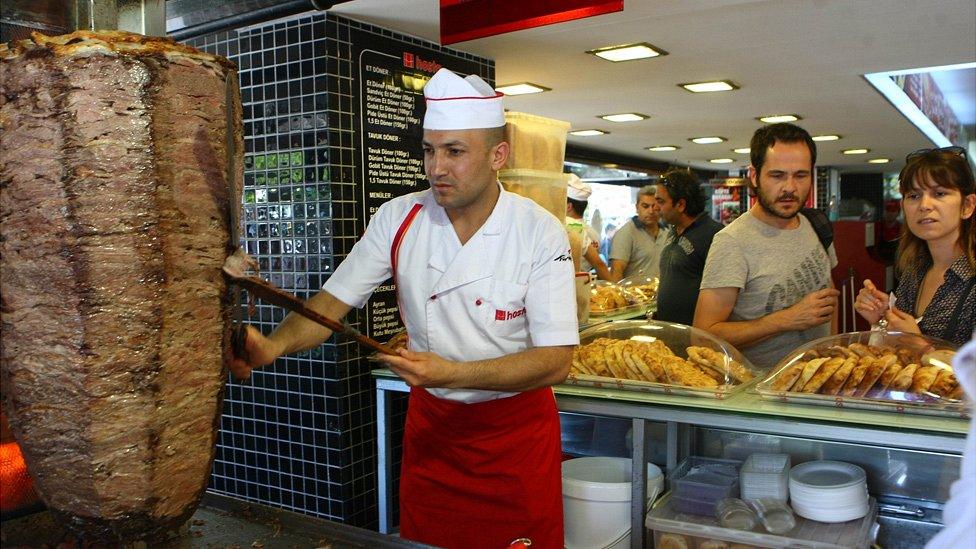
Phosphates are added to doner meat to stop it disintegrating on the spit
Another week, another EU food scare. Is the future of the humble and hugely popular doner kebab now in question?
Recent headlines are not comforting for fans of the spicy, grilled Turkish meat.
"Is the doner a goner?" and "For pitta's sake" helped fuel an anxious debate, while Germany's Bild daily screamed "It could be the end of the doner!"
It's all because of a vote in the European Parliament next week. MEPs will debate whether to tighten controls over phosphate additives widely used in the meat following health warnings.
But it's not all bad news for this fast food favourite.
What's all the fuss about in the EU?
Technically phosphate additives are already banned from doner kebabs, but they are commonly used in the frozen meat and the EU rule isn't enforced.
The EU Commission wants to allow use of the additives and to regulate them - as happens already with some other processed meats, such as speciality sausages.
But a resolution put forward by the Socialist and Green groups, external threatens to block that move.
If it is successful, doner kebabs are likely to face tighter scrutiny.
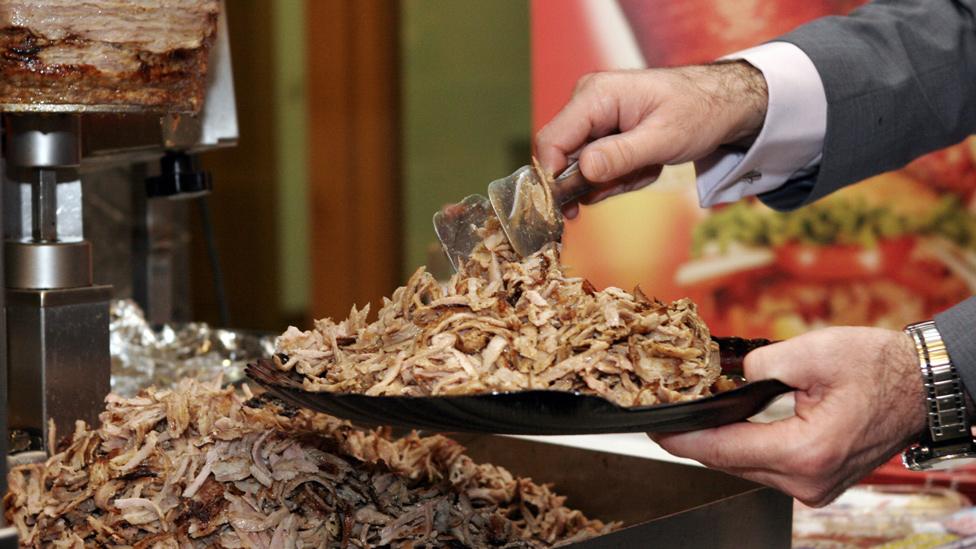
What would late-night revellers do without quick, tasty doner kebabs?
What is the concern about phosphate additives?
There have been health warnings about a high intake of phosphate additives posing a possible risk, especially to people with cardiovascular problems and chronic kidney disease. The additives, identified by various E numbers on packaging labels, are also common in sausages and some other processed meats.
Christel Schaldemose, a Danish Socialist MEP, co-authored the resolution to block the Commission's plans. She told the BBC that "we fear the health effects" and "we don't have enough market surveillance" to control the use of phosphates.
The EU's European Food Safety Authority (Efsa) is now studying phosphate additives as a priority, external and plans to issue a scientific opinion on the risks before the end of next year.
"We're not saying we would ban doner meat forever, but let's wait until the Efsa review," Ms Schaldemose said.
Efsa says there is a need to establish whether the health risk comes mainly from phosphate additives or from a general accumulation of phosphates in the diet.
A scientific paper published by a German medical website, Deutsches Aerzteblatt, says naturally occurring phosphates in food, external - in meat, potatoes and bread, for example - "cannot be restricted without incurring the risk of lowering protein intake".

You might also like:

Only 40-60% of natural phosphates are absorbed by the body, but the absorption rate for phosphate additives is much higher, the study says.
"Phosphate additives in food are a matter of concern, and their potential impact on health may well have been underappreciated," it warns.
Processed meat can contain nearly 70% more phosphate than fresh meat.
Why use the additives?
Phosphate additives help to bind the meat, acting as a sort of glue. So when it's on a spit it doesn't fall apart.
That means the meat - usually lamb - should also cook through more evenly.
Phosphates can also act as acidic preservatives for meat, fish, cheese and soft drinks.
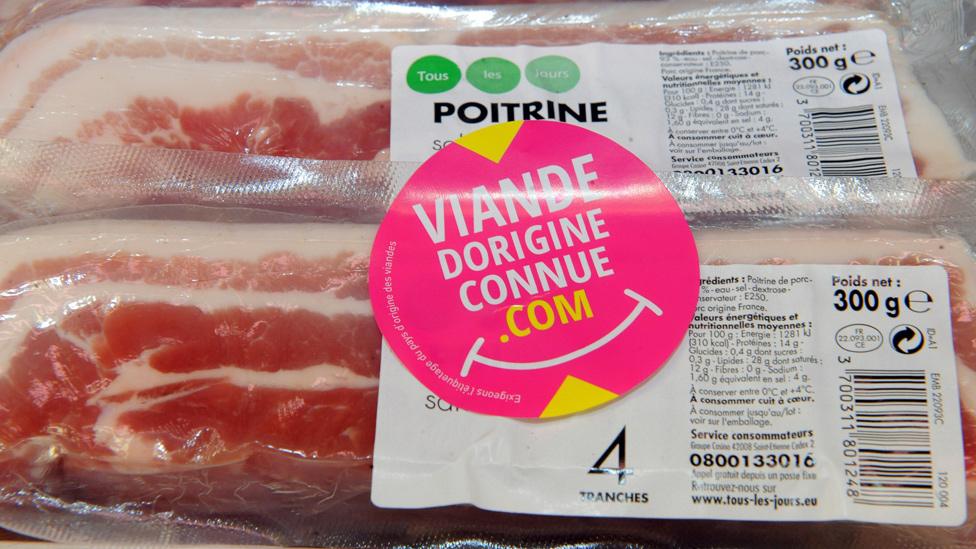
In the EU all ingredients - including additives - have to be clearly labelled
It is widely believed that they also help water retention in meat, keeping it juicy.
But Halil Ahmet, a director at Veli's Kebabs in Burton-on-Trent, external, said water retention was actually a bad idea.
"More water turns the meat into rubber, and the more phosphates you put in the more rubbery it gets," he told the BBC.
"We use a tiny level of phosphate - one gram per ten kilograms."
What does this all mean for kebab shops?
Nobody is threatening to ban doner kebabs, but the way the meat is produced may have to change.
Germany produces about 80% of doner meat consumed in the EU and about 110,000 German jobs depend on it.
Renate Sommer, a German MEP in Chancellor Angela Merkel's Christian Democrat (CDU) party, attacked the parliament resolution, external as "ridiculous" on Facebook (in German).
According to her, a typical EU citizen consumes as much phosphate from doner kebabs in one year as from drinking 1.5 litres (2.6 pints) of Coca-Cola.
She says kebab sellers have no alternative to phosphates for binding doner meat effectively.
But Mr Ahmet said he would like to see better checks by national food inspectors to make sure all kebab meat was up to standard.
"The checks are not adequate at all - we've complained to trading standards about other producers not conforming.
"They say 'we'll look into it', but they don't have enough inspectors."
- Published21 February 2017
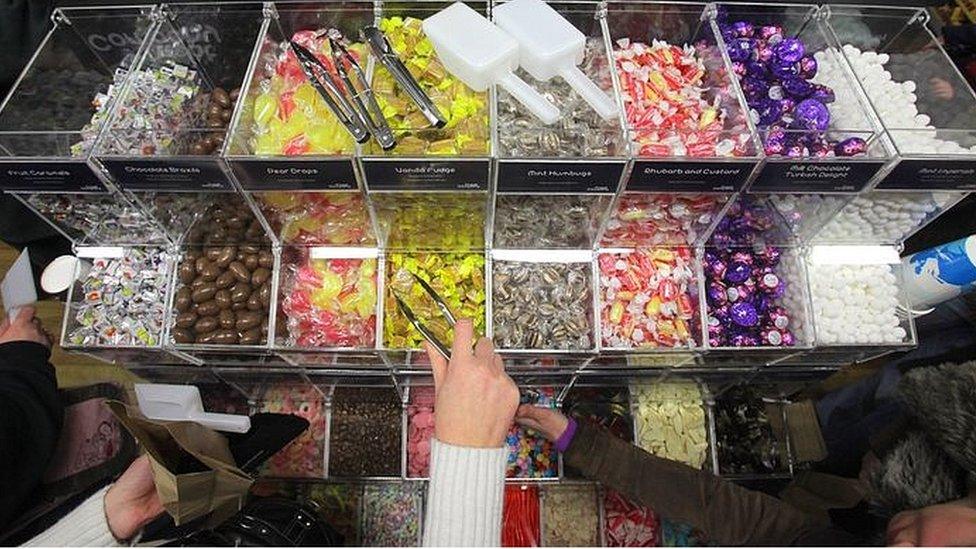
- Published25 September 2017
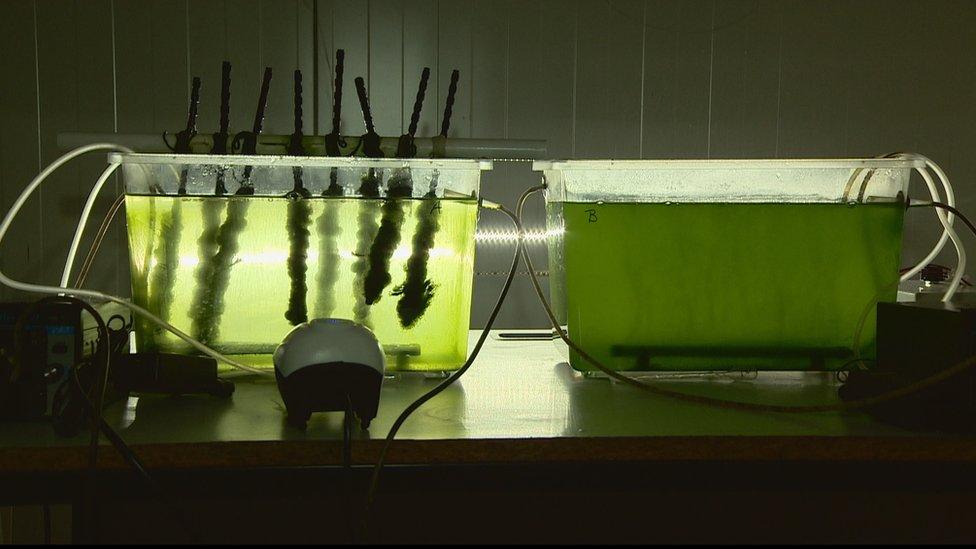
- Published26 October 2015
